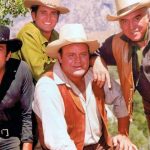After the premiere of its first season in September of 1976, Charlie’s Angels quickly became a popular show on television. Her performance as Jill, one of the three former police officers turned private investigators, was largely responsible for Farrah Fawcett’s meteoric rise to fame. She was showered with more fan letters and gained more media publicity than either of her sister angels. It came as a surprise when Fawcett stated in 1977 that she was going to leave the programme, particularly in light of the show’s success. However, she was forced to quit due to a variety of factors, including those related to her finances, her creativity, and her personal life. Join FactsVerse as we provide answers to the question, “Why did Farrah Fawcett leave Charlie’s Angels?”
Given the success the show had enjoyed in its first season, the last thing fans anticipated was that Farrah Fawcett would quit the show. However, that didn’t prevent her from parting ways with the show. While it’s hard to come up with any reason that would have inspired Fawcett to quit the show, there are some shocking details to the story.
It is pretty likely that Fawcett’s marital problems were a factor in her decision to leave Charlie’s Angels. At that time, Fawcett was married to Lee Majors. Both Fawcett and Majors were extremely popular on television during the 1970s. They were exposed to the harsh light of public attention, which happened to be a blessing and a curse. Majors once stated that their fame caused difficulties in their relationships. Aside from that, their working schedules sometimes kept them away from one another.
Both Fawcett and Majors were working nonstop. Fawcett and Majors held crucial roles in “Six Million Dollar Man” which was in production around the same time that Fawcett was starring in “Charlie’s Angels.”
The production of the performance required lengthy days that sometimes started as early as five in the morning. She continued to have advertisements to shoot on the weekends, even when she wasn’t busy with Charlie’s Angels.
“I was working really hard, and I wasn’t pleased with the hours,” Fawcett herself revealed.
Their work schedule also negatively impacted their marriage, and because they were both stars on separate television shows, the pair had significantly less time to spend together.
Majors remembered, “There was a year or so when I guess I saw her two weeks in a year.” “It’s quite challenging when it comes to occupations like that. This industry is notoriously difficult. Both of you were putting in 14-hour days at the office, and the weeks flew by quickly.”
After many ups and downs, the pair finally parted ways in 1979 and divorced three years later.
There were also claims that her decision not to return to the show was because of how she felt about her sister “Angels”.
There were negative consequences to shining above her co-stars. In an interview with People published in 1981, she said, “I felt uneasy knowing that I was receiving more fan letters and attention than Jaclyn Smith or Kate Jackson.” “I noticed them changing, not on the outside, but on the inside. Even though we never got into a disagreement, I still felt like there was a barrier between us.”
Fawcett was unable to have a regular life when she was not working because she had such a large number of devoted followers. She was forced to limit the amount of time she spent participating in her usual hobbies because she was constantly followed wherever she went. She also believed that in order to adjust to her new life, she needed to take certain measures, and in 1984, she said, “I became successful before I was ready for it or knew what I was doing. The success came before I had done what I thought was a good role. I knew that if I was going to stay in the business I had to change and I wanted to change.” The production of Charlie’s Angels is not just labor-intensive but also potentially hazardous. During one of her filming sessions, Fawcett was involved in a collision with a race car, which resulted in severe bruising on her leg.
Another possible explanation for why she quit the show might be money-related. Fawcett was an essential component in the success of Charlie’s Angels in terms of viewership. Aaron Spelling, who produced the series, stated that “Her hair was a big part of the show’s success. It eventually evolved into one of our signatures.” Despite this, she was only paid $5,000 per episode, which is half of what her co-star Jackson, who was already more well-known when the show first premiered, made. And despite the fact that her image was used on everything from lunch boxes to board games, Fawcett only received two percent of the revenue from the merchandise sales.
If you haven’t already, hit the like button, subscribe to the channel and hit the post notification bell to be among the first to be notified on our daily uploads.
She was set to receive a rise to $10,000 per episode thanks to the first season’s success, which aired from 1976 to 1977, but the Washington Post reported that she sought $75,000 instead. She reportedly asked for 10% of the merchandise revenue. While they could have worked something out, the production business found out that Fawcett was not interested in bargaining. It’s possible that Fawcett didn’t try to negotiate the amount of money she made from Angels because she saw movies as an opportunity to make a larger sum of money. At the beginning of 1977, she had mentioned to the Washington Post that she desired to create movies, and her co-star Smith has confirmed that Fawcett “wanted to produce features instead of a series.” Given that Fawcett had millions of followers who followed her on TV and bought her iconic poster, it was a reasonable assumption that people would pay to see her perform on the big screen.
Fawcett and her then-husband, actor Lee Majors, who was most known for his role in “The Six Million Dollar Man,” established Fawcett-Majors Productions in order to create and direct their own films. According to Goldberg, the producers of Angels reportedly made an offer to the actress in which they would pay her to star in an upcoming film while they would still pay her to appear in Angels. Fawcett would have had the potential to make other feature films in the years to come if she had agreed, but she did not accept this offer.
After she left for good, she was also hit with a breach of contract lawsuit by producers in the amount of $7 million, which she couldn’t fight. As part of the settlement, she was compelled to make multiple appearances as a guest host on her previous show. In an interview with the Archives of American Television, the producer of “Charlie’s Angels,” Leonard Goldberg, claimed that he had cautioned Farrah Fawcett that the activities she was about to take would have major consequences. Goldberg remarked, “She did not give us any other options.” “I told her, “Farrah, no one is going to hire you,” . No one’s going to recruit you since you’re under contract. And if they choose to employ you, we will sue them for inducing you to breach the agreement.
In 1979, Farrah Fawcett revealed to People magazine that the aftermath of the “Charlie’s Angels” case nearly “sank” her. She stated that the industry was antagonistic toward her since she was a TV sex symbol who aspired to be an actress. “The industry was unhappy with me and unfriendly because I wanted to be an actress,” she added. “People had the impression that I was really snobbish, and as a result, for several months, no one would touch me because they felt I was poison. But I knew I had no intention of giving up.”
According to Broadway World, she was offered the main part in an off-Broadway production of the gritty drama “Extremities” in the year 1983. It was in the role of this character that reviewers started to see past her reputation as a sex symbol. In 1986, when interviewed by The New York Times, Fawcett stated that “people said it was a tremendous risk.” “But when you have a deep passion for something, you don’t give much thought to the potential consequences. I had no doubt in my mind that I was capable of playing the part.”
The theatrical play helped pave the way for her 1984 television miniseries “The Burning Bed,” for which she received a nomination for an Emmy Award as an outstanding lead actress in a limited series or special. Fawcett was seen by everyone in a new light with the release of the film “Burning Bed,” which was based on the true story of a mistreated wife who killed her husband. After that, she was cast in a number of high-profile roles, such as the TV movie adaptation of “Extremities” in 1986, “Small Sacrifices” in 1989, and a recurring role in “The Guardian,” for which she was nominated for an Emmy.
After she departed Charlie’s Angels, Fawcett’s career was never able to achieve the same level of success again. Somebody Killed Her Husband (1978), her first film after Angels, was a flop and became famous for giving rise to the phrase “Somebody Killed Her Career.”
Throughout the years, Fawcett remained connected with Charlie’s Angels. she was also able to benefit from the long-lasting connections that the show had established. For instance, Jackson and Smith (both of whom had overcome breast cancer) banded together after learning that Fawcett had been diagnosed with anal cancer to support their fellow “angel” until her demise in 2009.
There you have it. It’s now time to hear from you. Let us know in the comments section whether you still enjoy Charlie’s Angels after Fawcett left the show. And also, let us know what your favourite Farrah Fawcett movie is. Remember to show your support by liking this video and subscribing to the channel. Enabling post notifications will ensure that you don’t miss any of our daily uploads. Catch you in the next one.


